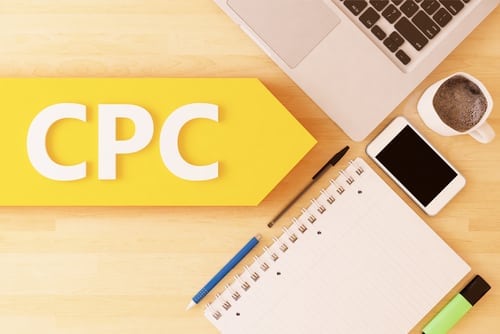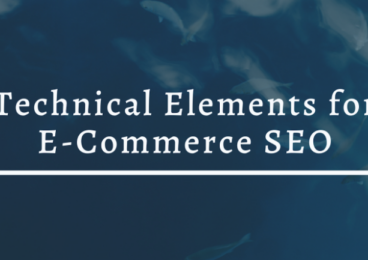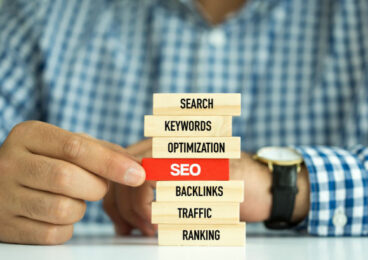 Reading Time: 4 minutes
Reading Time: 4 minutesOnline marketing is difficult and complex. Users are so overloaded with advertisements that it can be a challenge to make yours stand out from others. One of the strategies that companies use is pay-per-click (PPC) marketing. To successfully use PPC marketing in your business, you need to be careful how much you pay for each click. Follow these tips to create an effective cost per click (CPC) strategy for your business.
What Is PPC Marketing and CPC?
PPC marketing is a method that uses search engines to increase traffic to your website. Instead of encouraging people to click to your website by organic searches, you post sponsored advertisements at the top of search engines. Having your ad at the top of a search engine page exponentially increases visibility and, therefore, the likelihood of people visiting your website, so the search engine will charge a fee for each time someone clicks on it. PPC marketing also occurs on social media websites such as Facebook and Instagram.
The amount you pay the website per click is called Cost Per Click (CPC), and is a vital part of PPC marketing. If you are paying too much, the revenue you make from increased traffic may not be worth it because it is unlikely that each person who visits your website is going to purchase something. If your CPC is low enough, the price of PPC marketing will be worthwhile.
Factors That Determine CPC
Text, keywords, landing pages, and maximum bids are all relevant when setting a price for PPC advertisements on Google. Every time someone searches, Google analyzes all the ads that have a bid on the keyword. However, Google does not always choose the company with the highest offer.
Instead of only considering how much a business is willing to pay for each click, Google considers some specifics. Your advertisement must closely match the landing page that users go to when they click on the ad. If your ad is misleading and does not bring users to an accurate page, Google may not choose you, even if you are offering the highest CPC. For example, if your ad is showing polo shirts but the landing page displays button-down shirts, you will fall in the rankings.
If you win the auction, you usually do not need to pay the full CPC that you initially offered. The general rule states that you must pay slightly more than the second-ranked company offered.
The time of year also plays a part in CPC. If your company sells ski equipment, for example, you will want to intensify your marketing right before and during the winter season and are likely to offer higher bids. Holidays are also a more popular time for PPC marketing because of the increased consumer activity, so CPC prices are usually higher at this time.
CPC Strategy: Use Long Tail Keywords
Due to the number of factors that determine CPC, there are no strategies guaranteed to reduce the amount you pay for your PPC marketing. There are, however, ways to improve your chances.
The less popular a keyword is, the less expensive it will be. Long tail keywords are keyword phrases that consist of three or more words. They are more specific and fewer businesses use them, making them less popular. Because they are less popular, the CPC will be lower. For example, using the keyword phrase “digital marketing strategies” will cost less than “digital marketing” because fewer businesses will be competing for it.
Additionally, long tail keywords are more likely to attract people who are looking for something specific. If you use a general keyword, you run the risk of having more irrelevant clicks that do not lead to any revenue. With long tail keywords, you will not waste as much money on CPC because there is a higher chance that the user will purchase something from your website.
Use Less Common Keywords
If you do not have a large budget to spend on CPC, try to use less popular keywords. Use a Google tool called Keyword Planner. With Keyword Planner, you can type a keyword and it will produce other options that are less popular and, therefore, less expensive to bid on.
Include Negative Keywords
To reduce the number of irrelevant clicks on your advertisement, include negative keywords. They tell Google certain words that indicate that you do not want your advertisement showing up for that user. For example, if you put “cheap” as a negative keyword, Google will not show your advertisement to a user who includes the word “cheap” in their search.
Negative keywords improve your click-through-rate (CTR), which is determined by the number of times people view your ad and do or do not click on it. If you have a low CTR, it indicates your advertisement is not effective because many people are viewing it and not clicking on it. A low CTR also lowers your Quality Score.
Improve Your Quality Score
Your Quality Score is how Google ranks your advertisement. It bases the ranking largely on the relevance of your keyword and landing page. If you have a high Quality Score, you will have a lower CPC.
Specify Time and Place
Many businesses forget the benefits that accompany creating an ad schedule. Identify the times and days that you receive the most reliable customers and the highest CTR. Once you have determined your most successful times, you can schedule your advertisements to appear only at those times. Along with specifying times, you can target specific locations.
Running ads 24/7 all around the world can become extremely expensive. It will most likely increase the number of irrelevant clicks, lowering your CTR and Quality Score and wasting money on CPC.
PPC Marketing and CPC Strategies
PPC marketing can be a fantastic way to advertise your products and services effectively. However, it can do serious damage to your budget if your CPC is too high. The experts at Vizion Interactive have a deep understanding of PPC marketing, and can help you take advantage of the advertising opportunity, increasing traffic and revenue without hurting you financially.
At Vizion Interactive, we have the expertise, experience, and enthusiasm to get results and keep clients happy! Learn more about how our status as a Google Partner, along with our PPC Management, Google Shopping Ads, Social Media Advertising, Amazon Advertising, and other Paid Media services can increase sales and boost your ROI. But don’t just take our word for it, check out what our clients have to say, along with our case studies.




